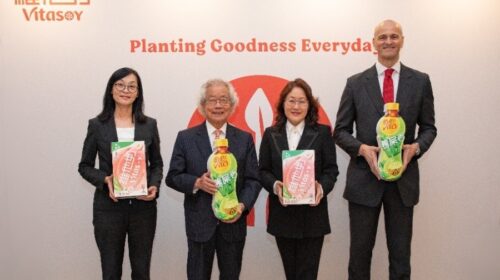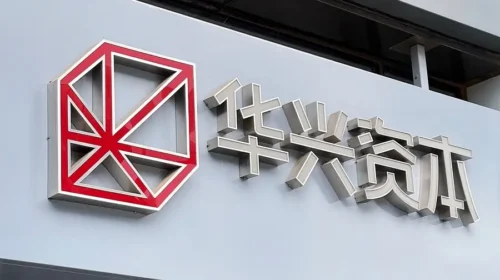Autohome shifts into higher gear with NEVs and immersive tech

The Chinese car trading giant is expanding its network of high-tech showrooms where customers can check out various models in virtual reality
Key Takeaways:
- Autohome’s profits rose about 4% last year to 1.88 billion yuan
- The trading platform’s sales of new energy vehicles are soaring, jumping nearly 82% last year
By Fai Pui
China’s accelerating car market has put online trader Autohome Inc. (ATHM.US; 2518.HK) on the road to a post-Covid recovery, with some bumps along the way.
Government measures to boost auto consumption, backed by promotions from manufacturers, powered a 5.6% rise in Chinese passenger car sales last year to 21.7 million units, according to vehicle industry statistics. The jump was nearly triple the 1.9% rise in 2022, making China the world’s biggest auto market.
Rising car ownership has added fuel to Autohome’s business as an auto trading portal, with sales increasingly driven by new energy vehicles (NEVs). The company logged a fifth straight quarter of revenue growth at the end of 2023, although the rise was modest. Its latest results show revenue reached 1.91 billion yuan ($269 million) in the fourth quarter, a year-on-year increase of 1%, although net profit fell 25.6% to 432 million yuan.
But for the whole year, the picture looked brighter. Autohome’s revenues rose 3.5% to 7.18 billion yuan last year and net profit also increased about 4% to 1.88 billion yuan. The car trading platform reported an adjusted net profit of 2.16 billion yuan for the full year, on a par with the 2.17 billion yuan in 2022, while the adjusted net profit margin remained high at 30.1%.
The figures came as a pleasant surprise for investors. Autohome’s stock price on the Hong Kong market jumped 8.3% to HK$52 on the day after the earnings.
Autohome connects car buyers and sellers through its online platform and operates physical showrooms where customers can sample different brands in high-tech simulations. Its three main business segments are media services, lead generation and online marketing.
Revenues from media services fell about 18% to 500 million yuan in the fourth quarter and retreated 4.7% to 1.87 billion yuan for the full year. However, the other divisions put in a more robust performance. Revenues from lead generation advanced 6.9% to around 840 million yuan in the fourth quarter, while the full year saw a rise of 1.8% to 3.11 billion yuan. Online marketing and other services produced the strongest results, with revenues jumping 14.8% to 570 million yuan for the quarter and increasing 14.6% to 2.2 billion yuan for the full year.
Revenues may be rising, but so are costs. Autohome’s sales and marketing expenses in the fourth quarter rose by 8.5% to 730 million yuan from the same period a year earlier, while general and administrative expenses soared 52.6% to 157 million yuan. Meanwhile, research and development expenses rose 13.7% to 356 million yuan. Overall, operating expenses for the quarter leapt 14.2% to a whopping 1.24 billion yuan and increased 2.4% to 4.9 billion yuan for the full year.
And the company’s positive earnings performance owes a lot to its investment strategy. Last year, Autohome’s returns from interest and investments rose a hefty 47.1% to 831 million yuan. Earnings from holdings in associate companies, described in the results as equity method investments, swung from a loss of nearly 50 million yuan to a profit of 29.13 million yuan. Interest and investment income together accounted for nearly 44% of the company’s 1.88 billion yuan profit last year.
Despite its post-pandemic challenges, the car trader has been betting heavily on growth in electric cars and the market for second-hand vehicles. It has ramped up marketing efforts under growing competitive pressure from NEV manufacturers who are shifting towards a direct sales model, potentially squeezing out intermediaries such as Autohome. In response, the company has been investing in tools to help customers check car prices and conditions, as well as opening more offline showrooms to gain greater traction in the NEV market.
By the end of last year, Autohome had rolled out 20 of its so-called Energy Spaces in cities across China, with the latest in Beijing’s automobile museum, using holographic technology to help buyers browse suitable cars in an immersive setting. By entering their preferred budget, brand and model, they can find a matching car from factories, dealerships or second-hand platforms without having to visit various stores.
Tech tie-up with Baidu
The launch of the Autohome Energy Spaces boosted the company’s revenues from NEV car sales by 81.6% last year, drawing more brands into the system. The centers offer 3D holographs of more than 70 models from mainstream car brands. Autohome plans to extend the network to 50 Chinese cities this year, doubling to 100 cities the following year and broadening out to include overseas markets, helping Chinese car companies to build a global presence.
Market watchers expect the high-tech Autohome centers could fuel the company’s advance into third- and fourth-tier Chinese cities, helping to introduce buyers there to a range of NEVs.
The experience centers could also rev up the used car business, giving customers data and information about second-hand vehicles as well as new cars. Autohome, which holds a 51% stake in the car trading platform Tiantian Paiche, has predicted that its experiential showrooms will help to develop the relatively untapped market for used cars in China’s smaller cities.
Relying on technology for its space centers, the company has been splurging on R&D while collaborating with leaders such as Baidu (BIDU.US; 9888.HK) in the fields of artificial intelligence and big data. In early February, Autohome announced a deal with Baidu to develop and apply innovation across a range of areas from content creation to marketing, customer service and business decision-making, using Baidu’s Qianfan intelligent platform.
Autohome, as one of the few vehicle trading platforms to turn a profit, enjoys a price-to-sales (P/S) ratio of 3.16 times, way above the 0.56 times and 0.14 times for domestic peers Cango (CANG.US) and Kaixin Auto (KXIN.US), and the 0.54 times for U.S. online car dealer Carvana (CVNA.US). Autohome’s hefty premium implies that investors are confident the company is on a profitable track.
The Bamboo Works offers a wide-ranging mix of coverage on U.S.- and Hong Kong-listed Chinese companies, including some sponsored content. For additional queries, including questions on individual articles, please contact us by clicking here.
To subscribe to Bamboo Works free weekly newsletter, click here






